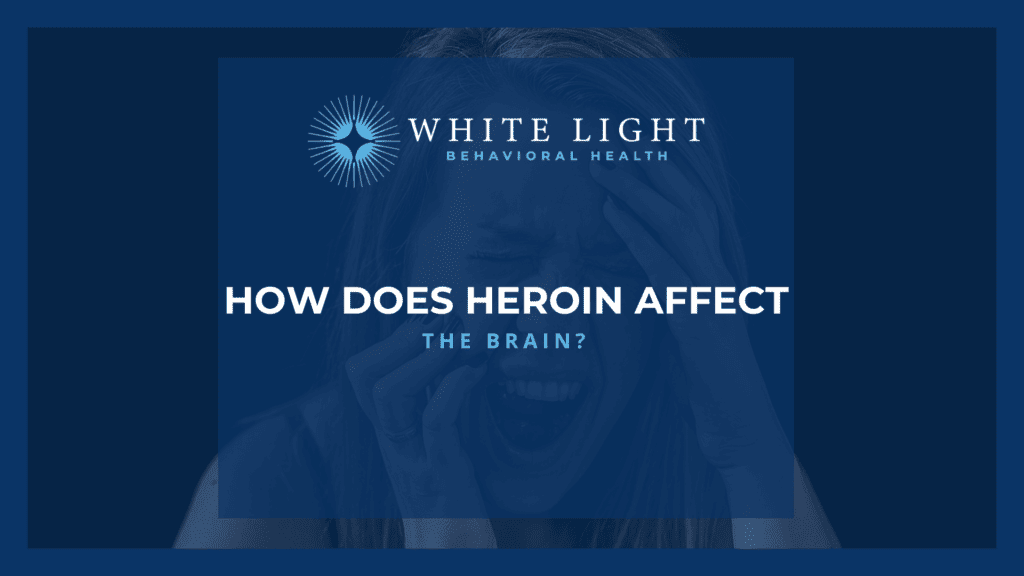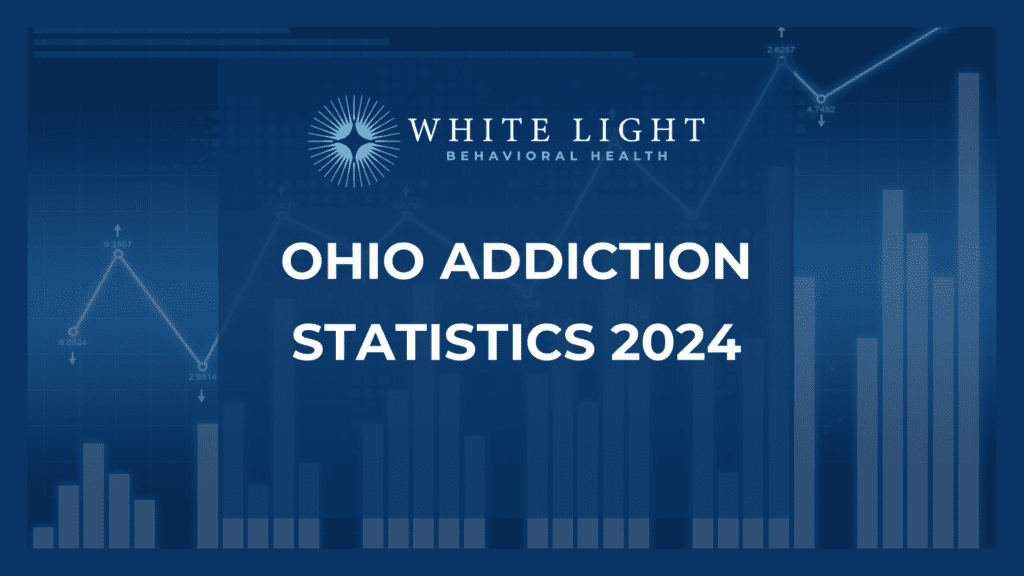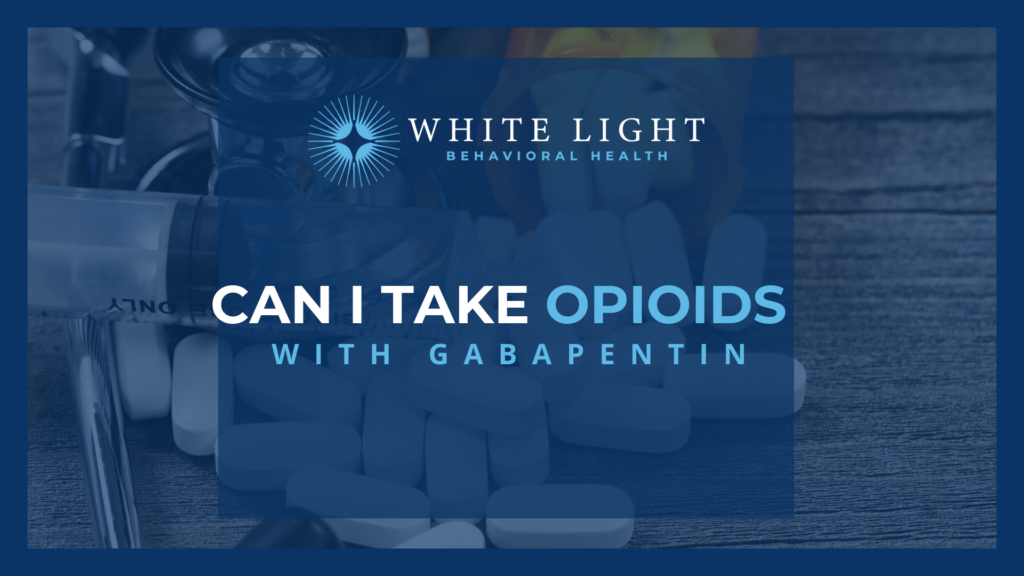How Does Heroin Use and Addiction Affect the Brain?
Heroin, also known as diamorphine or diacetylmorphine, is an opioid substance made from the opium poppy. This substance harms the brain and the body and has been labeled an illegal or controlled substance in several countries worldwide as per a study published in 2006 by National Drug Intelligence Center. Heroin is an addictive substance that can lead to dependency after repeated use and could also have adverse psychological effects on the life of the user.
The long-term effects of heroin addiction can seriously damage an individual’s health and social and physical well-being. In case you are worried about an individual, knowing the signs and symptoms of heroin addiction is an essential step toward seeking help.
Signs of Heroin Use
Recognizing the signs of heroin use is crucial for early intervention. These signs can be categorized into physical symptoms, behavioral and emotional changes, and health and hygiene issues.
Physical Signs
Individuals who are just getting started in using heroin will often show physical signs of its use, though they may be subtle. Some of the physical symptoms that an individual is using heroin include constricted pupils, an irregular or slow heartbeat, and drowsiness.
When an individual has a heroin addiction, they tend to lose appetite for food, which leads to rapid weight loss. In the long run, these individuals suffer from nutritional deficiencies that could also lead to other immune-related diseases. Frequent drowsiness or nodding off is a common sign of heroin use. Also known as heroin sniffle, dry mouth, and a runny nose are other common side effects.
Behavioral and Emotional Changes
Heroin use can cause an individual to become socially distant from others. These individuals tend to isolate themselves from other people even as they prioritize drug-seeking behaviors. It is also possible for them to neglect any responsibilities that they are supposed to undertake.
Individuals who are getting started on heroin may exhibit several behavioral changes. These changes may include being more secretive, losing interest in activities they once enjoyed participating in, and withdrawing from friends and family.
Health and Hygiene Issues
Individuals who use drugs tend to neglect their overall hygiene. They tend to appear disheveled and lose interest in self-care and grooming. Many heroin users inject themselves with needles, which leave track marks on their skin. In most cases, their arms will have scar marks and puncture wounds due to repeated use.
Frequent heroin users and people with addiction tend to neglect their oral hygiene. Some of the common signs with such individuals include gum disease and tooth decay.
Short- and Long-Term Effects of Heroin in the Brain
Since heroin is an addictive substance that causes dependency, its long-term use can lead to adverse effects on the brain as it alters its normal functionality. While the physical effects may appear worrisome, the psychological impact is grave. Here are the short and long-term effects of heroin use on the brain.
Tolerance and Dependence
The continued use of heroin causes an adapting mechanism in the brain. This causes the brain to require increased doses of the substance to achieve the same result. As an individual increases their dosage of heroin, the brain develops tolerance. This, in turn, causes dependence, leading to a repeat cycle.
Restricted Production of Dopamine in the Brain
The body is naturally wired to produce dopamine for feel-good feelings and also to stimulate feelings of motivation and gratitude. Dopamine also helps in controlling moods, sleep, concentration, and memory. When an individual uses heroin, it inhibits the brain’s natural ability to produce dopamine.
Imbalances in the Brain
Continued heroin use causes the substance to bind itself to receptors known as opioid receptors in the brain. When attaching itself to the receptors, heroin metabolizes into morphine, influencing how the brain and body regulate pleasure and pain.
Deterioration of White Matter
Heroin addiction can lead to the deterioration of the white matter of the brain. This part of the brain is mostly responsible for aiding communication between the different areas of the brain, and any structural changes affect its overall integrity.
The individual in most cases will experience challenges in how they regulate their emotions while also experiencing cognitive deficits. The continued use of the substance may also lead to neurological consequences that necessitate treatment to stop the impact on the brain.
Severe Cognitive Impairment
Individuals who are adversely affected by heroin addiction may experience the development of dementia-like body syndrome and severe cognitive impairment. Due to the changes in the brain structure, the individuals develop a condition that resembles Alzheimer’s.
Neuro-Adaptation/Rewiring
Chronic heroin use leads to neuroadaptation of a rewiring of the brain. Due to the continued presence of the substance in the body, the brain adjusts itself to produce fewer neurotransmitters. The effect is that an individual will require higher doses of the same substance to achieve the rush they crave.
Mental Health Issues
Medical research has established that there is a link between mental health issues and heroin use. It is common for individuals who use heroin to develop anxiety and mood disorders and even spiral down to depression.
Hormonal Imbalance
According to Nathaniel Katz’s report published in the National Library of Medicine in 2009, Heroin addiction affects the body’s endocrine system, which, in turn, causes hormonal imbalance in the individual using the substance. The disruption of the normal hormone balance can lead to several physiological and psychological effects. Some of the hormones affected due to heroin addiction include stress hormones, growth hormones, endorphins, thyroid hormones, and sex hormones.
Altered Brain Structure
Continued heroin intake can result in structural alteration of the brain. As an individual gets addicted to heroin, the connections between the brain neurons are lost, leading to the shrinking of the brain. In case an individual stops taking heroin, the shrinking may stop and become reversible, although the damage may remain permanent.
Other consequences that an individual may experience, especially if they are long-term users, include:
- Blood clots in the injected body parts
- Lung infections such as TB and pneumonia
- Liver and kidney damage
- Infections such as hepatitis and HIV due to needle sharing
- Stroke
- Collapsed veins
Psychological Effects of Heroin Addiction
The psychological effect of heroin on the brain is adverse since it is an extremely addictive substance. When an individual uses heroin, it causes a trigger response resulting in the increased production of dopamine. Since dopamine affects the brain’s reward system, it causes an individual to experience a pleasant rush that keeps them hooked on the substance.
Heroin Withdrawal Symptoms
Individuals who are intent on recovering from heroin addiction may experience uncomfortable withdrawal symptoms as per a study by Camille Peri published in Webmd. In the attempt to stop or reduce the amount of drug intake, an individual will experience withdrawal symptoms as the body tries to adapt to the absence of the substance. The symptoms may vary depending on the duration of use, intensity of withdrawal, and the overall well-being of the individual. Below are some of the notable symptoms of heroin withdrawal.
Vomiting, Nausea, and Diarrhea
Heroin withdrawal comes with gastrointestinal distress, which comes with symptoms such as nausea, vomiting, and diarrhea. This can lead to dehydration or severe complications if not managed properly, hence the need for professional assistance.
Intense Cravings
Some of the most difficult feelings that an individual recovering from heroin addiction has to contend with are the intense drug cravings they will experience. Due to the dependence levels an individual has reached, the difficulty may vary from one individual to another. During the withdrawal stage, it is important to manage these symptoms for a successful recovery process.
Sleep Disturbance and Insomnia
Insomnia and sleep disturbance are common experiences for individuals during the withdrawal stages of heroin. It is also normal for these individuals to experience vivid dreams and frequent awakenings leading to disrupted sleep and fatigue. Experiencing these symptoms may only worsen the situation for an individual who is already tired and anxious.
Muscle Pain and Twitches
During the withdrawal process, an individual may experience weakness and muscle pain. The body may experience cramping, aching, and overall discomfort.
Anxiety and Depression
Heightened levels of anxiety, restlessness, and depression are major signs of heroin withdrawal. The individuals may experience feelings of agitation and nervousness. The above psychological factors may increase the levels and intensity of social unavailability.
Treatment and Recovery for Heroin Addiction
Detoxing is an effective way for an individual to seek treatment for the effects of heroin addiction. However, undertaking this procedure without supervision can be difficult. Specialized treatment centers offer medical detoxification from trained and qualified professionals with round-the-clock supervision and intervention. After the detoxification process, a physician will work with the individual to create a personalized treatment plan. This is important since each individual is different, and the extent of the use differs.
An individual who is addicted to heroin can receive treatment in several different ways. This includes the use of behavioral therapies and medicines. With the advancements in technology, some medicines are being developed for those experiencing withdrawal symptoms. One of these medicines is lofexidine, which is a non-opioid medicine approved by the FDA.
The heroin addiction medicines work by interacting with the brain receptors, helping reverse the effects of heroin. Some of the ways that individuals can seek treatment for heroin addiction include the following:
Medication-Assisted Treatment (MAT)
Medication-assisted treatment for individuals with heroin addiction includes:
- Methadone – This is an opioid receptor that works by attaching itself to the opioid receptors and activates them as a full agonist.
- Naltrexone – This is an antagonist opioid receptor that helps protect an individual by attaching itself to the receptors as an antagonist to block heroin effects.
- Buprenorphine – This is an opioid receptor that acts as a partial agonist. It works by attaching itself to the opioid receptors and activating them to help the individual undergoing the cravings and withdrawal symptoms.
Support Groups
According to a module of Rural Health Information Hub, Recovery and peer support groups are instrumental in helping individuals recover from heroin addiction. The mutual self-help groups offer assistance, guidance, and encouragement. They also offer emotional support while learning new coping skills to identify their triggers, reduce cravings, and ease stress levels. The support groups have varying structures, goals, and social activities. An individual can opt to pursue both support groups and counseling and therapy as they can work hand in hand to help in recovery.
Counseling and Therapy
Therapy is an important tool to assist individuals seeking treatment for heroin addiction. Trained and experienced counselors can also offer much-needed guidance to help these individuals overcome the urge to continue using drugs. Behavioral therapies, such as cognitive behavioral therapy (CBT), together with contingency management offer an effective approach to help individuals seeking freedom from addiction. The strategies also help in the identification and changing of behavioral patterns contributing to heroin use.
Rehabilitation Programs
One of the best treatment programs for individuals recovering from addiction is seeking help in rehabilitation homes. Depending on the level of heroin addiction an individual has, the levels of care may also vary. Some individuals may require drug detoxification. Several benefits can come out of this strategy including breaking the addiction cycle, uncovering disorders, gaining healthy habits, and creating healthy boundaries. The rehab programs are instrumental in managing addiction and helping individuals regain sobriety.
Seeking Help for Heroin Addiction
While seeking treatment for individuals who are addicted to heroin, it is important to approach them with empathy and understanding. It is important to encourage these individuals to seek professional help. Undertaking a comprehensive approach to treatment increases the chances that an individual will successfully recover from the addiction.
For those seeking comprehensive and empathetic treatment for heroin addiction, White Light Behavioral Health offers a supportive and professional environment. Our center provides personalized treatment plans, encompassing medication-assisted treatment, therapy, and support groups tailored to the unique needs of each individual. Reach out to our team today for more information about our treatment services.
What are the short-term effects of heroin use on the brain?
When heroin enters the brain, it binds to opioid receptors, leading to a surge of dopamine, resulting in feelings of euphoria and relaxation. This action also depresses the central nervous system, causing slowed breathing and heart rate, drowsiness, and clouded mental functioning.
How does heroin addiction impact brain function over time?
Repeated heroin use leads to changes in the brain’s structure and function. Chronic use can result in tolerance, where higher doses are needed to achieve the same effects, and dependence, where the brain adapts to the presence of heroin and requires it to function normally. These changes can impair decision-making, impulse control, and the ability to regulate emotions.
Can heroin use cause permanent damage to the brain?
Yes, prolonged heroin use can cause lasting changes to the brain’s structure and function. These changes may persist even after someone stops using the drug, potentially leading to cognitive deficits, memory problems, and difficulty regulating emotions.
What is the relationship between heroin use and the risk of developing diabetes?
Research suggests that there may be a link between heroin use and an increased risk of developing diabetes. Chronic heroin use can disrupt metabolic function and lead to insulin resistance, a precursor to diabetes. Understanding this relationship between heroin and diabetes is crucial for developing effective prevention and treatment strategies for individuals struggling with heroin addiction.
How does heroin use affect the risk of mental health disorders?
Heroin use is associated with an increased risk of developing mental health disorders such as depression, anxiety, and post-traumatic stress disorder (PTSD). The drug’s effects on the brain’s reward system and stress response contribute to the development and exacerbation of these conditions.
What are the potential long-term consequences of heroin addiction on brain health?
Long-term heroin addiction can have severe consequences on brain health, including cognitive impairment, memory problems, and an increased risk of neurological disorders such as Parkinson’s disease. These effects may persist even after someone achieves sobriety.
How does heroin use affect the brain differently from other opioids?
Heroin is converted into morphine in the brain, where it binds to opioid receptors, producing its effects. Compared to other opioids, such as prescription painkillers, heroin tends to have a faster onset of action and a more intense high due to its ability to rapidly cross the blood-brain barrier.
Can heroin use lead to overdose and brain damage?
Yes, heroin use can lead to overdose, which can result in brain damage or even death. An overdose occurs when the respiratory system becomes suppressed to the point of failure, leading to oxygen deprivation in the brain. Without prompt medical intervention, this can cause permanent brain damage.
How does heroin use impact brain development in adolescents?
Adolescents who use heroin may experience disruptions in brain development, as the drug can interfere with the formation of neural circuits and synaptic connections. This can impair cognitive function, emotional regulation, and decision-making skills, potentially leading to long-term consequences for brain health.
Does heroin use increase the risk of infectious diseases affecting the brain?
Yes, heroin use is associated with an increased risk of infectious diseases such as HIV/AIDS and hepatitis, which can affect the brain. These infections can lead to conditions such as encephalitis or meningitis, which can cause inflammation and damage to the brain tissue.
How can someone find a heroin detox, withdrawal, and treatment center in Ohio?
If you or someone you know is struggling with heroin addiction in Ohio, there are numerous resources available for detox, withdrawal management, and treatment. You can start by contacting local addiction treatment centers, community health clinics, or organizations specializing in substance abuse treatment. Additionally, online directories and helplines can provide information and assistance in finding the right treatment options tailored to individual needs. Seeking support from healthcare professionals and loved ones can also be instrumental in navigating the journey to recovery.

Share This Post



